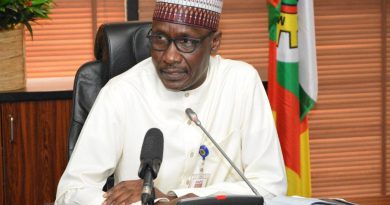Nigeria’s external reserves hit 22-month high _ CBN
Nigeria’s external reserves, which represent the country’s stock of foreign currency, have reached a 22-month high of $37.31 billion, reflecting significant foreign inflows into Africa’s largest economy.
However, they have failed to make a real impact on the faltering naira, which was adjudged one of the 10 worst performing currencies in the world by Bloomberg on September 20.
The reserves serve as a crucial measure of the nation’s ability to meet international financial obligations and stabilise the local currency.
Data from the Central Bank of Nigeria (CBN) reveal that as of September 18, 2024, the reserves hit the highest level since November 4, 2022, when they stood at $37.36 billion. This marks a notable recovery in Nigeria’s foreign currency position.
On a year-to-date basis, the country’s reserves surged by 12.99 percent, or $4.29 billion, from the $33.02 billion recorded at the start of the year on January 2, 2024.
Several factors have contributed to the increase in external reserves. Key sources of the inflows include: the federal government’s domestic dollar bonds, which attracted foreign investment; remittance inflows from Nigerians abroad; multilateral loans from international organisations; and foreign portfolio investments.
Ayokunle Olubunmi, head of financial institutions ratings at Agusto Consulting, said the major driver is the domestic dollar bond.
“It’s primarily the domestic bond proceeds. The uptick in diaspora remittance and portfolio investments also supported the surge.”
When compared year-on-year, Nigeria’s foreign reserves grew by 12 percent, adding $4.03 billion to the $33.28 billion recorded on September 18, 2023.
The federal government raised over $900 million from investors through the issuance of $500 million, the first series of the $2 billion domestic US dollar bond aimed to stabilise the economy.
West Africa’s largest economy recorded $553 million in remittances in one year, between July 2023 and July 2024, according to the CBN.
Other inflows into the country’s economy within the period include: $3.3 billion AfreximBank oil facility, and $2.25 billion from the World Bank Group.
The rising external reserves, which empower the CBN to defend the local currency, have not translated into naira appreciation. Despite the growing reserves, the naira has depreciated by 49.56 percent per dollar in the official foreign exchange (FX) market over the review period.
According to data from FMDQ Securities Exchange Limited, the naira declined from N776.60 on September 19, 2023, to N1, 539.65 on September 18, 2024 in the Nigerian Autonomous Foreign Exchange Market (NAFEM), previously known as the Investors and Exporters (I&E) forex window.
In the parallel market, often referred to as the black market, the naira also lost 41.87 percent (N695) to the dollar, falling from N965 on September 19, 2023 to N1,660 on September 18, 2024, based on data from street traders and various online platforms.



